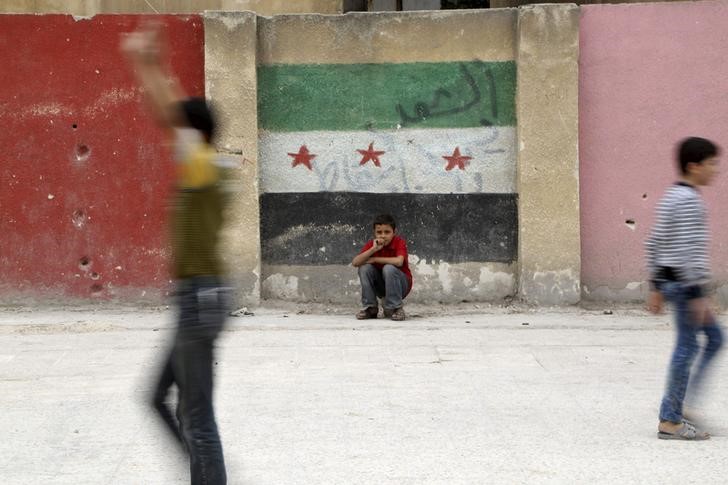By Phil Stewart
COPENHAGEN (Reuters) - U.S. Defence Secretary Jim Mattis said on Monday the United States would closely examine proposed de-escalation zones aimed at easing Syria's civil war but warned "the devil's in the details" and that much needed to be worked out.
The deal to create "de-escalation" zones in the major areas of conflict in western Syria took effect on Saturday.
The initiative was proposed by Russia, President Bashar al-Assad's most powerful ally, with the support of Turkey, which backs the opposition. Iran, Assad's other major ally, also backed it.
Political and armed opposition groups have rejected the proposal, saying Russia has been unwilling or unable to get Assad and his Iranian-backed militia allies to respect past ceasefires.
Syrian Foreign Minister Walid al-Moualem said on Monday that his government would abide by the terms of the plan so long as rebels also observed it, although the Syrian government has also said it will continue to fight what it calls terrorist groups.
The U.S. State Department has voiced concerns about the deal, saying it was skeptical of Iran's involvement as a guarantor of the accord and Damascus's track record on previous agreements.
Mattis, in some of the most extensive remarks by the Trump administration so far, was cautious when asked about the deal's chances as he travelled to Copenhagen for talks with U.S. allies.
"All wars eventually come to an end and we've been looking for a long time how to bring this one to an end. So we’ll look at the proposal and see if it can work," he told reporters.
He added that basic details were still unclear, including who specifically would ensure the zones were "safe" and exactly which groups would be kept out of them.
Pressed as to whether he thought the de-escalation zones could help end the conflict, Mattis said: "The devil's always in the details, right? So we've got to look at the details."
The agreement said four de-escalation zones would be established in Syria for a period of six months, which could be extended if the three signatory countries agreed.
Weaponry and air strikes were not to be used in those zones by combatants, the text published by the Russian foreign ministry on Saturday said.
The agreement also includes creating conditions for humanitarian access, medical assistance and the return of displaced civilians to their homes.
The initiative is the most serious effort to reduce violence and shore up a ceasefire first declared in December since western states accused Damascus of a chemical attack in early April on rebel-held Idlib province.
Mattis noted that U.S. Marine General Joseph Dunford, chairman of the Joint Chiefs of Staff, spoke about the zones with his Russian counterpart on Saturday.
"This subject was brought up, but there’s a lot of details to be worked out," Mattis said.
